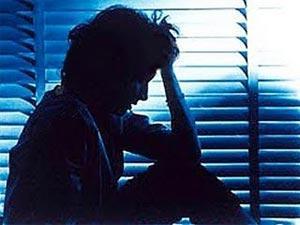 A pan-India survey conducted recently by the Bangalore-based Institute for Social and Economic Change (ISEC) has brought to light an alarming fact about Indian women. A typical Indian woman fares abysmally with regards to her menopausal health. The study tested samples from 1,00,000 women in the age band of 15-50 years, across 26 states. The findings of the ISEC survey highlight that on an average nearly 4 percent of Indian women are already menopausal between the ages of 29-34 years. It goes up to 8 percent in the case of women between 35 and 39 years. This is shocking because normal menopause starts between the ages of 45 and 55, with a mean age of around 51 years worldwide. Early menopause also puts women at a higher risk of being affected with osteoporosis, heart diseases, diabetes, hypertension and breast cancer.
A pan-India survey conducted recently by the Bangalore-based Institute for Social and Economic Change (ISEC) has brought to light an alarming fact about Indian women. A typical Indian woman fares abysmally with regards to her menopausal health. The study tested samples from 1,00,000 women in the age band of 15-50 years, across 26 states. The findings of the ISEC survey highlight that on an average nearly 4 percent of Indian women are already menopausal between the ages of 29-34 years. It goes up to 8 percent in the case of women between 35 and 39 years. This is shocking because normal menopause starts between the ages of 45 and 55, with a mean age of around 51 years worldwide. Early menopause also puts women at a higher risk of being affected with osteoporosis, heart diseases, diabetes, hypertension and breast cancer.
According to the study by ISEC, a higher number of illiterate women experience premature menopause, as against those who are educated. Among the illiterate women, a substantive 20 percent suffer from premature menopause, as against 11.1 percent of women who hold at least a graduate degree. The study also highlighted that the percentage of women hit by premature menopause is marginally lower in urban areas (16.1 percent) as against rural (18.3 percent). Interestingly, women who marry and have children late have less reason to worry, as they experience a delayed onset of menopause.
What is menopause?
Menopause is a normal change in a woman's body. The formal definition of menopause is the last menstrual period. Menopause is the time in a woman's life when her period stops and she can no longer become pregnant. Over time, a woman's ovaries slowly make less and less of the hormones estrogen and progesterone. Eventually, ovaries in women run out of functioning eggs, which results in menopause.
What is early or premature menopause?
There is actually no real difference between menopause and premature menopause, apart from the fact that one affects women in their 50s whilst the latter can affect women at a much younger age. If menopause occurs before the age of 45, it is considered early menopause; if menopause occurs before the age of 40, it is considered premature menopause.
What causes premature menopause?
There are a number of things that can lead to premature menopause. Sometimes these things are a result of lifestyle choices that include:
What are the symptoms of premature menopause?
Symptoms of premature menopause are the same as those experienced by women undergoing natural menopause and may include:
What can I do about it?
Premature menopause can be treated in 2 ways:
Hormone therapy: Hormone replacement therapy (HRT) replaces some of the hormones like oestrogen and progesterone that are reduced during and after the menopause. There are various tablets, patches, skin gels and implants available in the market to do so.
However there are various side effects including tender breasts, heavier periods, water retention, weight gain, depression, feeling sick and headaches.
Non-hormone therapy: Some women can try natural treatments to help relieve hot flashes. Some of the most common tips are:
Your friends and family should also be very supportive at this stage of life. Living life after menopause isn't so bad; in fact, it can be a very pleasant when you have people around you.